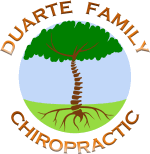Many people experience lapses in memory as they get older. Every so often, it may become frustratingly difficult or even temporarily impossible to recall a particular word or a specific person's name. A person might commit a phone number to memory and then immediately forget it. Of course, everyone is familiar with the sinking feeling associated with the critical question "where did I put my keys?" For most people these glitches are minor, nothing more. However, for a certain percentage of older persons (approximately 10-20%), these lapses represent mild cognitive impairment.1 And for a proportion of these people, mild cognitive impairment will progress to Alzheimer's disease.
Normal aging can include instances of subtle forgetfulness such as having difficulty recalling words, not remembering where you put an important document, or leaving a full milk carton on the kitchen counter overnight. But the memory loss associated with mild cognitive impairment represents an actual condition, i.e., an actual disease entity. Such memory loss is more prominent. People forget important information such as meaningful telephone conversations, recent events that would normally be of interest, and dates and times of appointments.
In the early stages it may be challenging to differentiate mild cognitive impairment from the effects of normal aging. Some suspected cases of impaired mental activity may in fact represent treatable conditions such as depression and an underactive thyroid. People experiencing the significant memory problems associated with mild cognitive impairment may be expected to decline by about 10% each year. Risk factors associated with more rapid decline include a low metabolic rate in regions of the brain associated with memory and processing of information. More rapid decline is also associated with reduced size of the hippocampus, a seahorse-shaped structure located in the center of the brain which is important in memory, spatial memory, and navigation.
The good news is that people can take action on their own behalf to preserve and improve cognitive function. Numerous recent studies have shown that regular exercise provides a significant benefit in people with memory problems.2,3 For example, long-term improvements in cognitive function were obtained by walking for 50 minutes a day, three times per week. People exercising for 150 minutes each week had better delayed recall and they performed better on cognitive tests. Additionally, people doing moderate exercise had lower Clinical Dementia Rating Scores. In one study, a 6-month program of physical activity resulted in improvements which persisted over an 18-month period.
The message is clear. We want to have the opportunity to get older and we also want to live well. There are natural effects of normal aging, but we don't want other potential effects of aging to grind us down. Exercising is an important action step that has a wide range of benefits, including improved cardiovascular and respiratory function. We now know that exercise can also preserve and improve cognitive abilities. It's smart to do regular exercise to help us stay smart.
